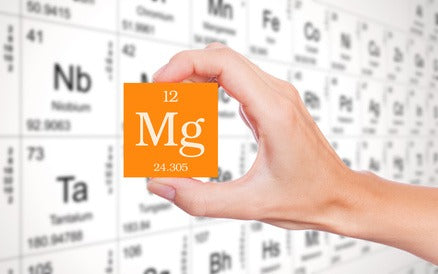According to a study published in The Journal of Intensive Care Medicine, A deficiency in this critical nutrient makes you twice as likely to die! I’m talking about Magnesium. Its been referred to as an antidote for stress and the most powerful relaxation mineral available to improve sleep. More and more people are catching on to use Magnesium in their life and are telling us how it has changed their health for the better and we love hearing your feedback.
For those of you who are new to The Relaxation Mineral here are a few pointers we have gathered from our research.
Doctors use Magnesium in the emergency room. It is a critical “medication” on the crash cart. If someone was dying of a life-threatening arrhythmia (or irregular heart beat), intravenous magnesium was used. If someone was constipated or needed to prepare for colonoscopy, they were given milk of magnesia or a green bottle of liquid magnesium citrate, which emptied their bowels. If pregnant women came in with pre-term labor, or high blood pressure of pregnancy (pre-eclampsia) or seizures, they gave them continuous high doses of intravenous magnesium. But you don’t have to be in a life threatening situation to benefit from magnesium, You can start taking a magnesium today and the best way to have it believe it or not is transderamally “via the skin” the largest organ in our body is the skin. And it just makes so much sense, as often the places we need it are in the knee joints, hips tight shoulders etc…
Think of magnesium as the relaxation mineral. Anything that is tight, irritable, cramping, and stiff — whether it is a body part or an even a mood — is a sign of magnesium deficiency.
This critical mineral is responsible for over 300 enzyme reactions and is found in all of your tissues — but mainly in your bones, muscles, and brain. You must have it for your cells to make energy, for many different chemical pumps to work, to stabilise membranes, and to help muscles relax.
The list of conditions that are found related to magnesium deficiency is long. There are over 3,500 medical references on magnesium deficiency!
Although it is not a drug it is even more Powerful which is why it is used in hospital for life-threatening and emergency situations like seizures and heart failure.
Symptoms of magnesium deficiency can include:
- Muscle cramps or twitches
- Insomnia
- Irritability
- Sensitivity to loud noises
- Anxiety
- Autism
- ADD
- Palpitations
- Angina
- Constipation
- Anal spasms
- Headaches
- Migraines
- Fibromyalgia
- Chronic fatigue
- Asthma
- Kidney stone
- Diabetes
- Obesity
- Osteoporosis
- High blood pressure
- PMS
- Menstrual cramps
- Irritable bladder
- Irritable bowel syndrome
- Reflux
- Trouble swallowing
Magnesium deficiency has even has been linked to inflammation in the body and higher CRP levels.
Magnesium deficiency is a huge problem and the reason people are so deficiant is simple – A diet that contains practically no magnesium, highly processed and refined food of white flour, meat, dairy, drugs, iodised salts, coffee, colas and the list goes on…its the 21st century where people live on fast food and packets from super markets. Not to mention fluoridated water which also effects Magnesium levels.
This is all further complicated by the fact that most magnesium supplements are poorly absorbed and easily lost from our bodies.
A recent scientific review of magnesium concluded, “It is highly regrettable that the deficiency of such an inexpensive, low-toxicity nutrient results in diseases that cause incalculable suffering and expense throughout the world.” (ii) I couldn’t’ have said it better myself.
It is difficult to measure and hard to study, but magnesium deficiency accounts for untold suffering — and is simple to correct. So if you suffer from any of the symptoms I mentioned or have any of the diseases I noted, don’t worry — it is an easy fix!! Here’s how.
Stop Draining Your Body of Magnesium
- Limit coffee, colas, salt, sugar, and alcohol
- Learn how to practice active relaxation
- Check with your doctor if your medication is causing magnesium loss (many high blood pressure drugs or diuretics cause loss of magnesium)
Eat Foods High in Magnesium
Include the following in your diet as often as you can:
Kelp, wheat bran, wheat germ, almonds, cashews, buckwheat, brazil nuts, dulse, filberts, millet, pecans, walnuts, rye, tofu, soy beans, brown rice, figs, dates, collard greens, shrimp, avocado, parsley, beans, barley, dandelion greens and by using MagnesiumLife Transdermal Magnesium Chloride daily to Raise your levels Safely and Effectively.
